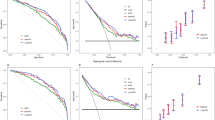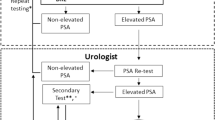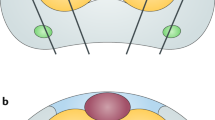Abstract
C-reactive protein (CRP) is an acute phase protein implicated in the progression of cancer. A positive correlation between tumour stage and plasma CRP levels was demonstrated in prostate cancer, indicating a relationship between raised CRP levels and more aggressive disease, suggesting a role for inflammatory response in tumour progression. Aim of this study was to assess the tumoural presence and cellular location of CRP and establish if these are linked to clincopathological features of the cohort and patient survival. Tissue microarray technology was employed to analyse 50 matched pairs of hormone sensitive and refractory prostate cancers. Immunohistochemistry was performed using antibody to CRP. CRP was assessed using the weighted histoscore method. CRP presence was observed in the cytoplasm and nucleus of selected tumours. Cytoplasmic CRP correlated positively with metastases at diagnosis (P=0.039), whereas nuclear CRP presence correlated with metastases at relapse (P=0.006). A trend towards an increase in cytoplasmic and nuclear CRP presence from hormone sensitive to hormone refractory tumours was noticed. No significant association between tumoural CRP presence, time to biochemical relapse or disease-specific survival was observed. Tumoural CRP is likely to have a role in progression of prostate cancer, as it is associated with increased presence of metastases at the time of diagnosis and time of relapse. A larger powered study is necessary to establish if CRP presence is associated with disease-specific survival.
This is a preview of subscription content, access via your institution
Access options
Subscribe to this journal
Receive 4 print issues and online access
$259.00 per year
only $64.75 per issue
Buy this article
- Purchase on Springer Link
- Instant access to full article PDF
Prices may be subject to local taxes which are calculated during checkout




Similar content being viewed by others
References
Cancer Research UK: CancerStats Key Facts on Prostate Cancer. 2010. http://info.cancerresearchuk.org/cancerstats/types/prostate/mortality.
CG58 Prostate cancer: full guidance. 2010. http://www.nice.org.uk/Guidance/CG58/PublicInfo/pdf/English.
Jin RJ, Lho Y, Connelly L, Wang Y, Yu X, Saint Jean L et al. The nuclear factor-kappaB pathway controls the progression of prostate cancer to androgen-independent growth. Cancer Res 2008; 68: 6762–6769.
Pepys MB, Hirschfield GM . C-reactive protein: a critical update. J Clin Invest 2003; 111: 1805–1812.
Yang J, Wezeman M, Zhang X, Lin P, Wang M, Qian J et al. Human C-reactive protein binds activating Fcgamma receptors and protects myeloma tumor cells from apoptosis. Cancer Cell 2007; 12: 252–265.
Beer TM, Lalani AS, Lee S, Mori M, Eilers KM, Curd JG et al. C-reactive protein as a prognostic marker for men with androgen-independent prostate cancer: results from the ASCENT trial. Cancer 2008; 112: 2377–2383.
McArdle PA, Mir K, Almushatat AS, Wallace AM, Underwood MA, McMillan DC . Systemic inflammatory response, prostate-specific antigen and survival in patients with metastatic prostate cancer. Urol Int 2006; 77: 127–129.
Jabs WJ, Busse M, Kruger S, Jocham D, Steinhoff J, Doehn C . Expression of C-reactive protein by renal cell carcinomas and unaffected surrounding renal tissue. Kidney Int 2005; 68: 2103–2110.
Edwards J, Traynor P, Munro AF, Pirret CF, Dunne B, Bartlett JM . The role of HER1-HER4 and EGFRvIII in hormone-castrate resistant prostate cancer. Clin Cancer Res 2006; 12: 123–130.
Huang S, Pettaway CA, Uehara H, Bucana CD, Fidler IJ . Blockade of NF-kappaB activity in human prostate cancer cells is associated with suppression of angiogenesis, invasion, and metastasis. Oncogene 2001; 20: 4188–4197.
Li Q, Withoff S, Verma IM . Inflammation-associated cancer: NF-kappaB is the lynchpin. Trends Immunol 2005; 26: 318–325.
Nozoe T, Korenaga D, Futatsugi M, Saeki H, Maehara Y, Sugimachi K . Immunohistochemical expression of C-reactive protein in squamous cell carcinoma of the esophagus—significance as a tumor marker. Cancer Lett 2003; 192: 89–95.
Kirkegaard T, Edwards J, Tovey S, McGlynn LM, Krishna SN, Mukherjee R et al. Observer variation in immunohistochemical analysis of protein expression, time for a change? Histopathology 2006; 48: 787–794.
Lehrer S, Diamond EJ, Mamkine B, Droller MJ, Stone NN, Stock RG . C-reactive protein is significantly associated with prostate-specific antigen and metastatic disease in prostate cancer. BJU Int 2005; 95: 961–962.
Elsberger B, Tan BA, Mitchell TJ, Brown SB, Mallon EA, Tovey SM et al. Is expression or activation of Src kinase associated with cancer-specific survival in ER-, PR- and HER2-negative breast cancer patients? Am J Pathol 2009; 175: 1389–1397.
Erin N, Wang N, Xin P, Bui V, Weisz J, Barkan GA et al. Altered gene expression in breast cancer liver metastases. Int J Cancer 2009; 124: 1503–1516.
Koo JS, Jung W, Jeong J . Metastatic breast cancer shows different immunohistochemical phenotype according to metastatic site. Tumori 2010; 96: 424–432.
Nozoe T, Mori E, Takahashi I, Ezaki T . Preoperative elevation of serum C-reactive protein as an independent prognostic indicator of colorectal carcinoma. Surg Today 2008; 38: 597–602.
McArdle PA, Canna K, McMillan DC, McNicol AM, Campbell R, Underwood MA . The relationship between T-lymphocyte subset infiltration and survival in patients with prostate cancer. Br J Cancer 2004; 91: 541–543.
McArdle PA, McMillan DC, Sattar N, Wallace AM, Underwood MA . The relationship between interleukin-6 and C-reactive protein in patients with benign and malignant prostate disease. Br J Cancer 2004; 91: 1755–1757.
Acknowledgements
This study was supported by the Glasgow Royal Infirmary Endowment Grant.
Author information
Authors and Affiliations
Corresponding author
Ethics declarations
Competing interests
The authors declare no conflict of interest.
Rights and permissions
About this article
Cite this article
Elsberger, B., Lankston, L., McMillan, D. et al. Presence of tumoural C-reactive protein correlates with progressive prostate cancer. Prostate Cancer Prostatic Dis 14, 122–128 (2011). https://doi.org/10.1038/pcan.2011.5
Received:
Revised:
Accepted:
Published:
Issue Date:
DOI: https://doi.org/10.1038/pcan.2011.5
Keywords
This article is cited by
-
Prognostic significance of pretreatment systemic immune-inflammation index in patients with prostate cancer: a meta-analysis
World Journal of Surgical Oncology (2023)
-
The modified Glasgow prognostic score in prostate cancer: results from a retrospective clinical series of 744 patients
BMC Cancer (2013)
-
Extra-Hepatic Cancer Represses Hepatic Drug Metabolism Via Interleukin (IL)-6 Signalling
Pharmaceutical Research (2013)
-
Patients with prostate cancer treated by ADT have significantly higher fibrinogenemia than healthy control
World Journal of Urology (2013)



